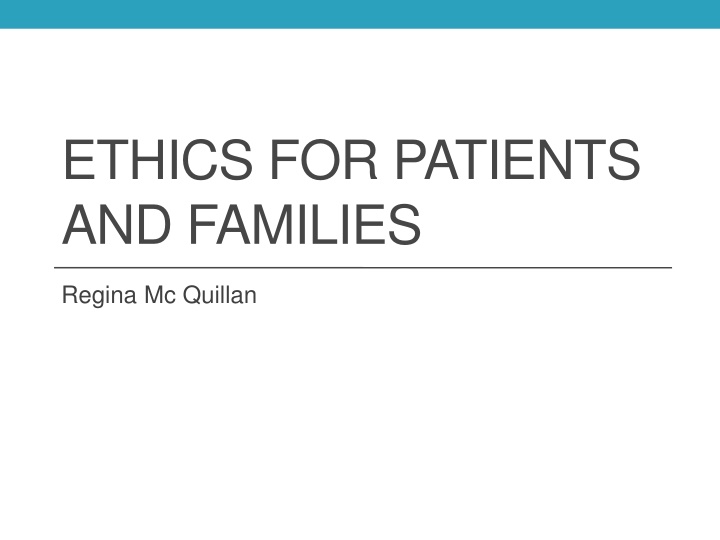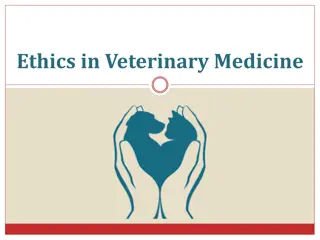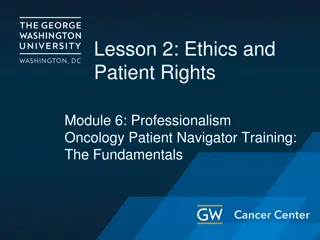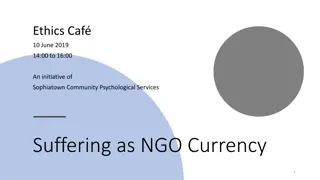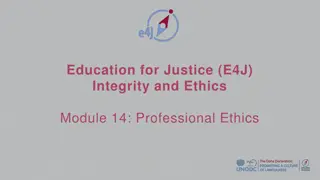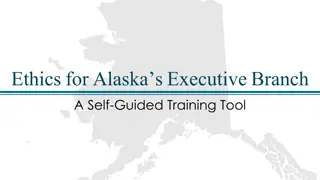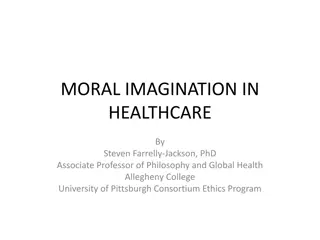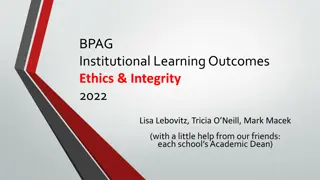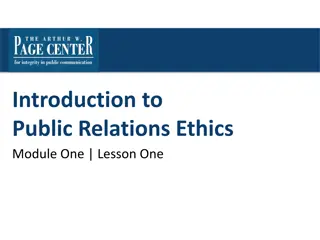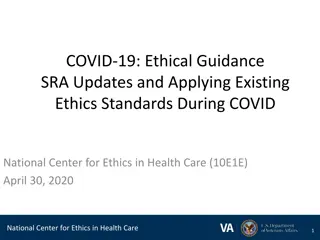Ethics for Patients and Families: Understanding Ethical Dilemmas in Healthcare
Explore the complex world of medical ethics with a focus on patient and family concerns. Delve into ethical principles, dilemmas, power dynamics, and conflicts in healthcare scenarios. Gain insights into professional conduct and ethical practices for medical practitioners.
Download Presentation

Please find below an Image/Link to download the presentation.
The content on the website is provided AS IS for your information and personal use only. It may not be sold, licensed, or shared on other websites without obtaining consent from the author.If you encounter any issues during the download, it is possible that the publisher has removed the file from their server.
You are allowed to download the files provided on this website for personal or commercial use, subject to the condition that they are used lawfully. All files are the property of their respective owners.
The content on the website is provided AS IS for your information and personal use only. It may not be sold, licensed, or shared on other websites without obtaining consent from the author.
E N D
Presentation Transcript
ETHICS FOR PATIENTS AND FAMILIES Regina Mc Quillan
Ethics That good should be done and evil avoided
Ethical Concerns Consent Capacity Confidentiality Assisted suicide, euthanasia Advance care planning Futility
Ethics Principle based Values based Utilitarian Consequentialist Non-consequentialist Religious based Etc .
Not a clinical dilemma Antibiotics for colds
Ethical dilemma Treatment options are equivalent, or nearly equivalent Difference in what should be provided
Conflict of ethical claims Between patient and doctor Between patient and family Between family and doctor Within team
Power Doctors
Power Doctors Nurses
Power Doctors Nurses Healthcare staff
Power Doctors Nurses Healthcare staff Families
Power Doctors Nurses Healthcare staff Families Patients
Guide to Professional Conduct and Ethics for Registered Medical Practitioners, 2016
Code of Professional Conduct and Ethics Nursing and Midwifery Board of Ireland (2014)
Ethical duties of patients Participate in healthcare juristinction-contribute to taxes, health insurance etc Maintain health Protect health of others e.g infection Seek and access care appropriately e.g. accept non-urgent appointments, be civil Truthful Compliance Inpatient-not disruptive, not undermining Attempt to recover Take part in research 10. Citizenship-take part in society, pay tax, vote 1. 2. 3. 4. 5. 6. 7. 8. 9. Evans 2008
Ethical issues Ethical Clinical Communication
Ethical issues Ethical Clinical Communication Use of illegal substance- cannabis Fair use of resources Experimental treatment Right to try Hospital or hospice beds Futile treatment Informed decision- making Assisted suicide/euthanasia
Autonomy A principle, not the principle
Autonomy A principle, not the principle Beneficence Non-maleficence Justice Beauchamp and Childress
Autonomy A principle, not the principle Beneficence Non-maleficence Justice Dignity Integrity Vulnerability BIOMED II project, Rendtorff, 2002
Autonomy A principle, not the principle Beneficence Non-maleficence Justice Dignity Integrity Vulnerability Fidelity
Autonomy Self-rule A competent or rational person making choices for reasons that reflect judgement and understanding Credit people with capacity Allowed exercise control over their life in terms of choices they make Farsides, 1998
Autonomy Emphasis on independence and sovereignty
Autonomy Emphasis on independence and sovereignty A response to healthcare paternalism Recognition of patients as rational choosers Response to increased literacy, education and health literacy of the public
Autonomy Emphasis on independence and sovereignty Dependent on, or influenced by others Other values such as friendship, loyalty, faith which require us to construct relationships Doing what is right Own needs vs needs of others
Justice Distributive justice - fairness, allocation of resources
Justice Distributive justice - fairness, allocation of resources Treat equals equally, unequals according to need
Justice Distributive justice - fairness, allocation of resources Treat equals equally, unequals according to need Rights-based justice
Justice Distributive justice- fairness, allocation of resources Treat equals equally, unequals according to need Rights-based justice Respect for morally acceptable laws (democracy)
Justice Distributive justice - fairness, allocation of resources Treat equals equally, unequals according to need Rights-based justice Respect for morally acceptable laws (democracy) Respect for morally acceptable healthcare systems, guidelines, protocols
Justice Assisted suicide and euthanasia Futile treatments Objectivity and professionalism Vulnerable people life-style
Health care workers responsibility To the patient, not the family Responsibility to the team/service, but patient central Good communication If no resolution Offer second opinion Trial of treatment/intervention Court decision will tend to support patient s best interest, not just best medical interest.
Ethical duties of patients Participate in healthcare juristinction-contribute to taxes, health insurance etc Maintain health Protect health of others e.g infection Seek and access care appropriately e.g. accept non-urgent appointments, be civil Truthful Compliance Inpatient-not disruptive, not undermining Attempt to recover Take part in research 10. Citizenship-take part in society, pay tax, vote 1. 2. 3. 4. 5. 6. 7. 8. 9. Evans 2008
Ethical duties of patients Power imbalance Consensus citizens engagement
